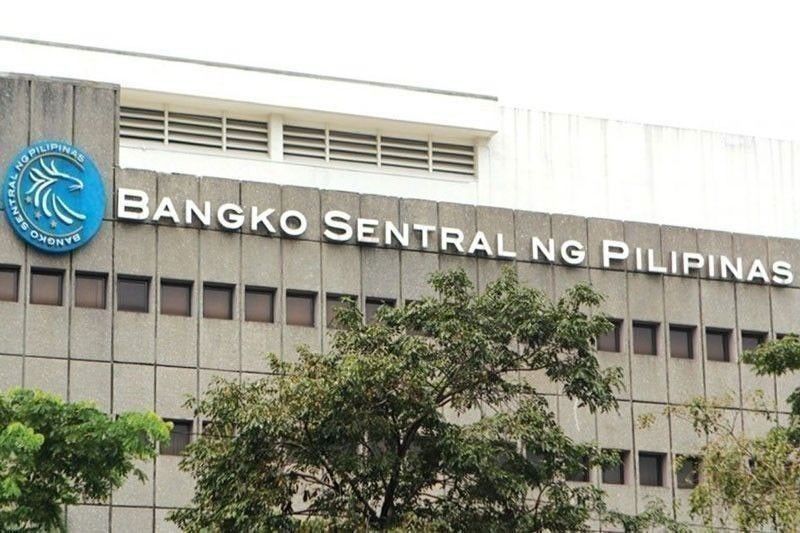BSP likely to keep interest rates steady

MANILA, Philippines — The Bangko Sentral ng Pilipinas (BSP) is expected to keep interest rates at record lows for now despite the risk brought about by the steady rise in global oil prices, economists said.
The BSP’s Monetary Board (MB) will hold its regular policy meet on Thursday, Feb.17.
Security Bank chief economist Robert Dan Roces said the MB is likely to leave key interest rates untouched during its first rate-setting meeting for this year, but would closely monitor the direction of oil prices as a major upside risk toward inflation.
“But with inflation still likely within the bounds of the target in the near to medium term, the Monetary Board could afford to remain accommodative for the time being, notwithstanding the significant upside risks posed by global crude prices,” he said.
UnionBank chief economist Ruben Carlo Asuncion said the manageable inflation and steady recovery from the recession have given the BSP enough room to maintain its accommodative and expansionary monetary policy stance.
“Following more than four straight quarters of GDP (gross domestic product) growth, the National Capital Region close to the coveted herd immunity, and manageable headline inflation, we expect the BSP to hold its current monetary policy stance in the upcoming Monetary Board meeting,” Asuncion said.
However, the UnionBank economist expects the BSP to finally initiate interest rate normalization beginning the second half or later this year.
Asuncion said the central bank decided to wait it out again before finally unwinding support starting in the second semester as BSP Governor Benjamin Diokno made it clear that there are looming uncertainties around the domestic economic recovery due to the pandemic.
Alvin Arogo, economist at Philippine National Bank, said the central bank would keep policy rates unchanged despite additional pressures for the US Federal Reserve to hike interest rates.
“Although the BSP cannot completely ignore the impending interest rate hikes by the US Fed, it will nevertheless be basing its decision primarily on the trajectory of the country’s GDP,” he said.
As the economy starts to recover lost ground by the third quarter, Arogo believes that the BSP would become comfortable to start tightening the monetary environment by the middle of the year.
“As such, we believe the BSP will likely start its rate hike cycle on June 23, which will be the second Monetary Board meeting after the May 9 elections,” Arogo said, adding that he expects two 25-basis point rate hikes this year.
Michael Ricafort, chief economist at Rizal Commercial Banking Corp., said easing inflation would help justify the relatively accommodative monetary policy in the country in view of the economy’s need for greater support measures to help sustain the country’s economic recovery and also better respond to the recent restrictions brought about by the increase in new COVID cases in January.
Inflation eased to a 15-month low of three percent in January from 3.2 percent in December. The consumer price index (CPI) has declined steadily since peaking at 4.4 percent in August last year to hit its lowest level since the 2.3 percent recorded in October 2020.
However, Ricafort said the possible rate hike by the US Fed by early March and possible more rate hikes later in 2022 could lead to some increase in local policy rates in view of the need to maintain comfortable interest rate differentials with the US and other developed countries.
For the meantime, he said the lack of additional funding for fiscal stimulus measures would still support the recent accommodative monetary policy stance.
In 2020, the BSP slashed interest rates by 200 basis points, bringing the benchmark rate to an all-time low of two percent as part of the regulator’s COVID response measures.
In its weekly outlook, London-based Capital Economics maintained that monetary policy in the Philippines would remain loose for the entire year.
“We expect the central bank in the Philippines to leave rates on hold on Thursday and to signal that it is in no hurry to begin tightening,” economist Alex Holmes said, adding that “rates are likely to remain on hold throughout this year.”
Market consensus is for the BSP to hike rates by as much as 50 basis points in 2022.
Gross domestic product (GDP) in the fourth quarter grew stronger than expected at 7.7 percent year-on-year, bringing the 2021 growth at 5.6 percent, also above government targets.
However, Holmes said there is still a long way for economic recovery to go.
“We estimate that output is still 14 percent below its pre-crisis trend. The central bank will likely want to keep policy supportive,” he said. – Louise Maureen Simeon
- Latest
- Trending


























